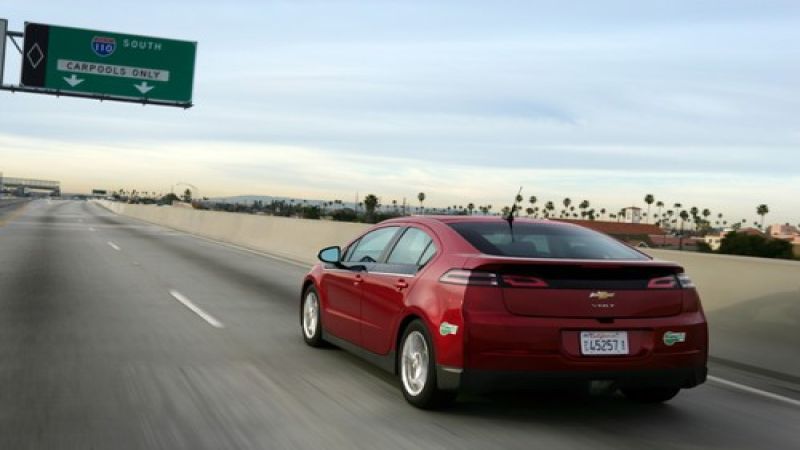When GM's North America President Mark Reuss spoke on Wednesday to the Automotive News World Congress, he not only gave a strong defense of electric cars like GM's Chevy Volt, but also promised the next generation of the Volt would be a lot cheaper. GM may be wishing for a way to reduce the Volt's price now that Nissan has drastically lowered the entry level price of the Nissan Leaf. But according to Reuss, the lower priced Volt will have to wait for a redesigned Volt, in a couple years.
For more on Reuss's defense of electric cars, see Electric cars are not dead but are inevitable, says GM's Mark Reuss. To learn about Nissan's lower price for the Nissan Leaf, see 2013 Leaf price falls to $29k, almost as low as the hybrids.
Because GM builds the Volt in the U.S.A. they cannot pull off the same currency exchange rate trick that Nissan did. The reason Nissan could lower the Leaf's entry-level price by $6,400 to a $28,800 MSRP was partly due to creating a stripped down model, but more importantly by moving manufacturing of the Leaf to a plant in the U.S. This meant Nissan had the exchange rates working for them, enabling the price decrease. The Volt's MSRP is $39,145.
Reuss said the next version of the Volt will be purpose-built as an electric car, rather than shoe-horning electric car components into an existing platform. The Chevy Volt is built on the same platform as the Chevy Cruze, but with a plug-in hybrid drive train, and a much nicer body and passenger compartment. That will let GM remove "thousands of dollars" in cost through better integration of battery pack, controller, and motor components.
Getting a lower price through better integration and improved design isn't exactly new, but it's nice to hear the head of an automobile manufacture make the case. During the summer a report published in the McKinsey Quarterly made the same argument. That study pointed to several trends which would together make electric vehicles inevitable, this included the rising price for gasoline, falling price for electric vehicle components (batteries), better integration, and manufacturing at higher volume.
While the sales of the Chevy Volt pulled way ahead of the Nissan Leaf during 2012, we wonder whether the trend might reverse. That the Leaf is now available at a much lower price than the Volt, its sales figures should improve dramatically. Maybe that will be at the cost of Volt sales, or maybe not. Reuss did not say when the redesigned Volt would be available. During the last year GM's Dan Akerson had let slip that battery technology improvements would enable a 150-200 mile range Chevy Volt sometime during the next 5-10 years.
GM is continuing to answer the question "Should GM kill the Chevy Volt, stand pat, or create the Volt2?" with moves saying they will create the Volt 2.0.
Set as google preferred source











Comments
I'd like to see a Cruze
Permalink
I'd like to see a Cruze Natgas 1.0 as well. But a Volt 2.0 will need a much lighter body structure (more aluminum) not to mention better energy density via a newer electrolyte and high-density nano electrodes.
Moreover, a Volt 2.0 needs a more efficient and cleaner generator motor, like a nat-gas dual fuel or a split-cycle engine or a Cyclone Power recirc steam external combustion motor. After all, GM is behind in those areas, which is needs for 2016 and 2025 mandates. How about it, GM?
I thought the volt was a
Permalink
I thought the volt was a purpose-built electric car, using GM's flexible electric vehicle platform?